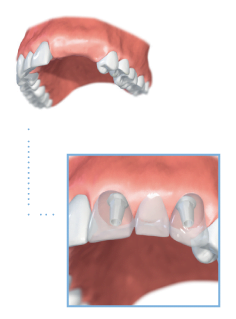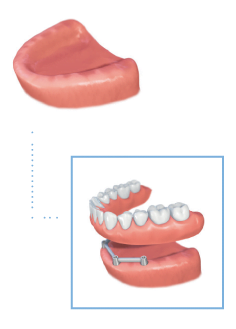If you are suffering from missing teeth, dental implants are an ideal solution, providing a secure foundation for a variety of dental restorations. Implants will enable you to chew properly, keep your healthy teeth and feel confident and attractive again.
A dental implant is a small, screw-like titanium fixture that is placed in the jawbone, normally under local anaesthetic. It acts as a replacement for your missing natural tooth root. Once healed, the artificial root becomes a base for fixing individual crowns, multi-tooth bridges or dentures.
Implants are versatile and can be used in a variety of restoration cases, including:
- To replace a single missing tooth
- To replace several missing teeth in a row
- To replace an entire upper or lower arch
- To secure loose dentures
To learn more and to find out if you are suitable for treatment with dental implants, telephone the practice on 01684 573109.
For our dental implant treatments, we are pleased to offer the visiting services of Dr Anthony Summerwill, who is a highly experienced registered specialist in prosthodontics and restorative dentistry. Read more about Anthony.
Book your consultation today
Can everyone have implants?
Most, but not all. It depends on the quality and quantity of your jawbone, which we will assess using digital x-rays and images. If the bone is unsuitable, it may be possible to graft bone into the area to enable treatment.
Does the implant procedure hurt?
For skilled clinicians, placing an implant is a relatively simple procedure during which we use a local anaesthetic to numb the area so you should not feel any pain. For very nervous patients, or in complex cases, we may recommend conscious sedation. After the surgery you may experience a little discomfort and swelling, but this can be treated at home with over-the-counter painkillers.
Are implants safe?
Yes, dental implants are a well-established treatment, supported by over 30 years of clinical evidence and a 95% success rate or higher. Implants actually improve the health of your jaw by increasing blood flow to an area that would otherwise atrophy.
How long do implants last?
The longevity of your implant will be largely determined by the quality of at-home care and attendance at regular clinical reviews. If poorly cared for, plaque can build up, as it would with natural teeth, and this can lead to gum infection, bleeding and general discomfort. However, well-maintained implants can last many years and often a lifetime.



